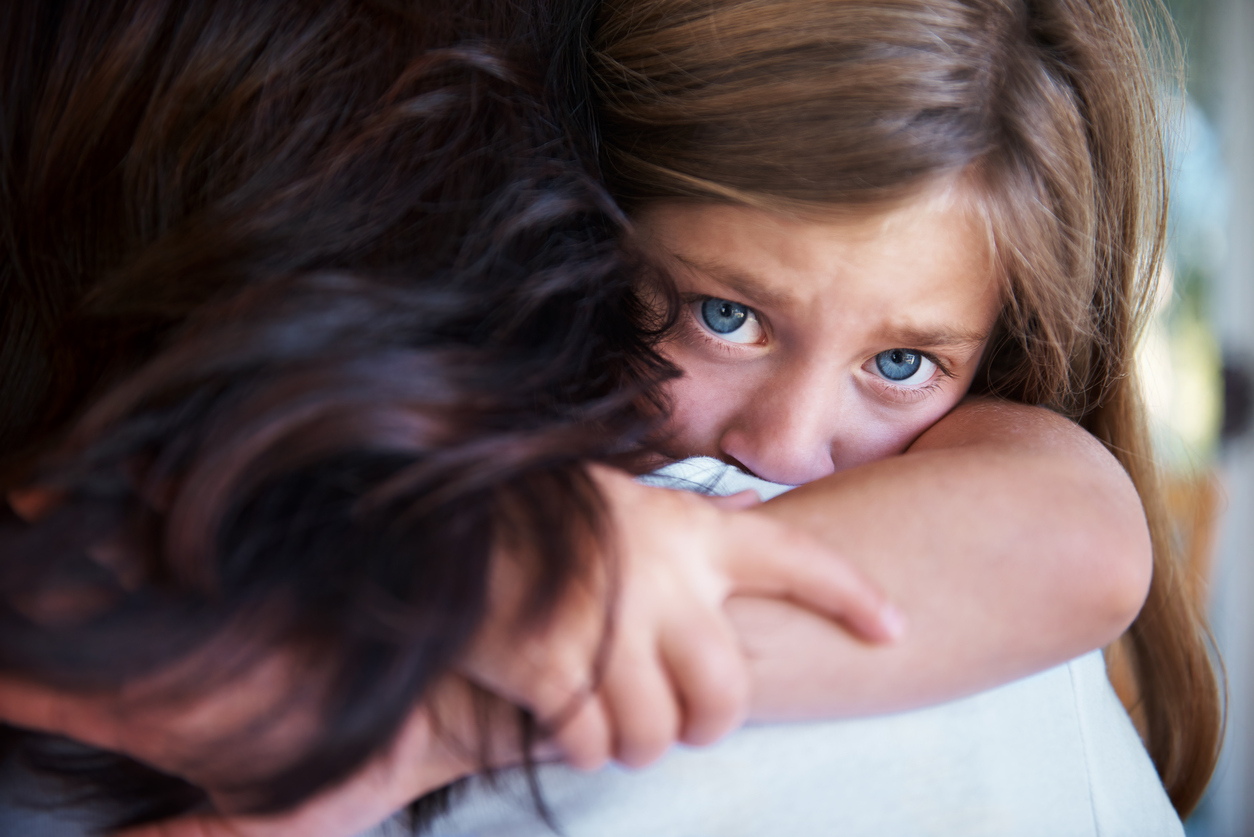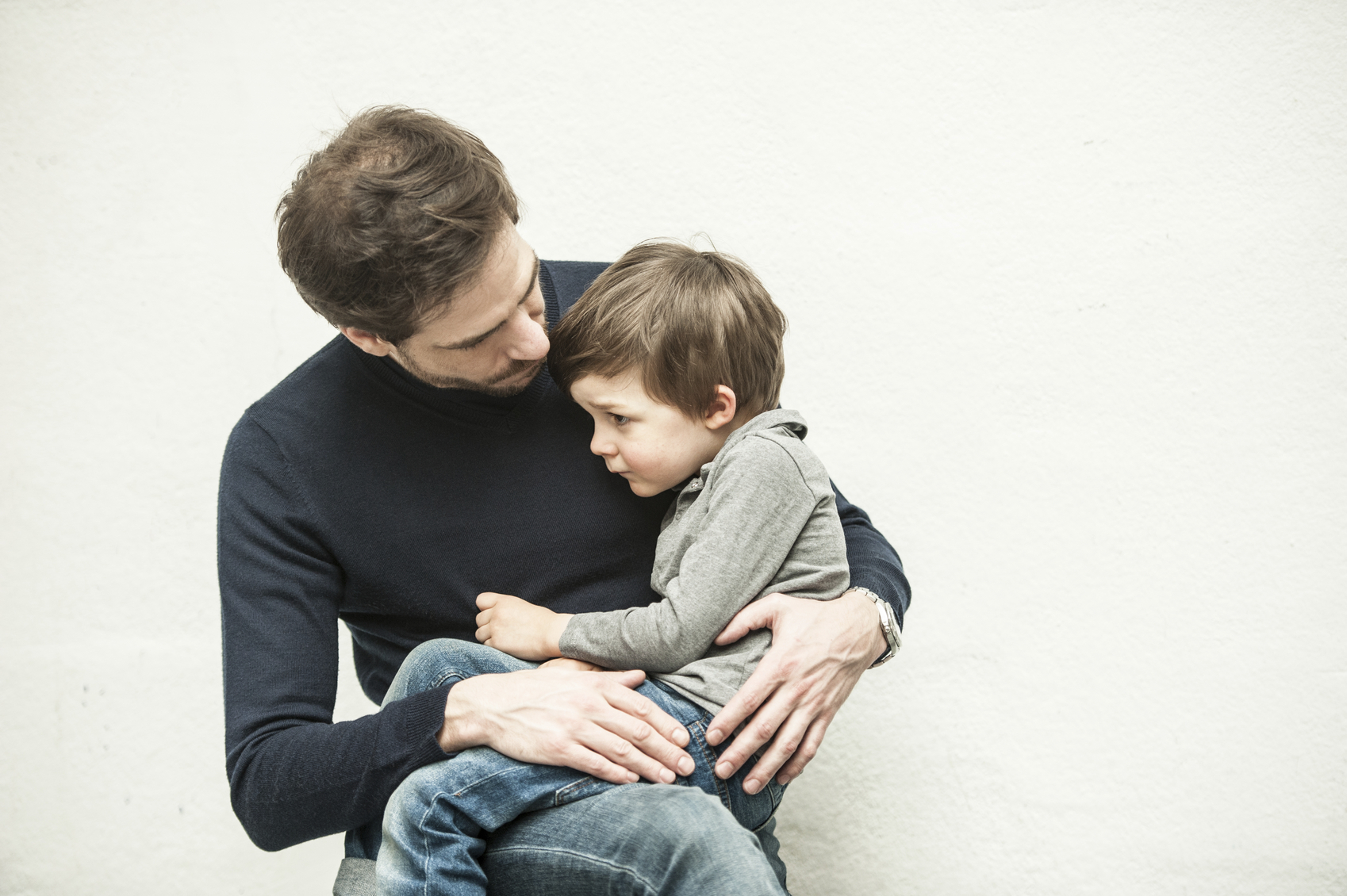"Where do people go when they die?"
Sometimes kids ask really tough, really direct questions that don't necessarily have easy answers. There are some topics, like death, illness, or aging, that can be difficult for grown-ups to have a handle on, let alone explain to a small child.

In Judaism, the rituals and beliefs surrounding loss fall into two categories: respect for the person who died (kavod hamet) and respect for their family and loved ones (kavod hachai). You don't need to go into a detailed explanation of either of these with your children. Rather you can show them how to embrace these by sharing memories and looking at pictures of your loved one (kavod hamet) and sitting shiva or sending food and cards to their families (kavod hachai).
When a family is grieving it may seem like there are no perfect answers or explanations. If you’re not sure how—or where—to start talking to your children about death or dying, here’s a guide to help you offer your kids and their peers answers from a Jewish perspective and comfort in an age-appropriate manner.
KIDS UNDER 5
Children of this age group generally have a hard time grasping the concept of death. At this age, children don’t really understand concepts like permanence or forever, but they will understand that grown-ups are sad. The key for this age group is reassurance, repetition, and simplicity.
Daniel Tiger’s Neighborhood covers death and dying in this special episode about Daniel’s pet fish.
Here are some talking points to use with very small children:
- It’s okay (and encouraged) to use the words “death” and “dying” with your children. Children won’t understand euphemisms and may become confused about what death really entails. Three to six-year-olds also may think that what has happened is reversible. By using direct language, you’ll help them understand that what happens is permanent.
- Keep your explanations simple. Here’s an example:
- “When a person or animal dies, their body stops working. They don’t feel cold or hot or hungry anymore.”
- Reassure your child. Kids of this age group are very focused on how things relate to them, so they may worry about their own mortality or wonder if they did something to cause the loved one’s passing.
- “Usually people only die when they’re very old and they’ve lived a long time.”
- “Uncle John died because he was very sick and his body didn’t work anymore. No one did anything to hurt him or make that happen.”
- Finally, children this young are best left out of participating in mourning rituals or funerals. If kids can’t stay with a sitter, tell them simply that grown-ups they see may be sad and that it’s all right to be sad and to ask questions. Pack distractions or busy bags for your kids if they need to come with you. For more guidance around young children and funerals, visit Modern Loss' 7 Ways to Accomodate Little Kids at a Funeral.
AGES 5 AND UP
By primary school, children are more inquisitive as well as empathetic. Tell your kids the truth, in an age-appropriate manner, and parcel out simple information as they ask. Be prepared to talk about coming life events, holidays, and milestones that your loved one won’t be present for.

With kids in this age group, there’s more understanding about the permanence of death. In addition to reassurance, children may become anxious or nervous about their own mortality, or fascinated by it. This is all normal. Answer your child’s questions simply and directly. You will also want to:
- Stick to your routines as well as possible.
- Share memories about the person you lost together. Talk about favorite moments, look at pictures together, share stories.
- Play together. Draw. Make arts and crafts – all of these activities can help kids work out their feelings.
- Cry. Grown-ups aren’t robots. If you need to cry, go ahead. Cry with your kids, hug each other, feel your feelings together.
TWEENS
By the time children are around nine or 10 years old, they understand what death is, but they still lack the coping and communication skills necessary to process loss the way that adults do. Be prepared for your child to have a lot of questions. While small children are often interested in where the person went or what death is, tweens often have questions about what happens to a person after they die. BimBam has wonderful videos that parents and kids of this age group can watch together that discuss Jewish mourning rituals and views on death.
This video from BimBam offers a quick overview of Jewish mourning rituals with simple suggestions for offering to support to the grieving.
- Respect your child’s individual grieving process. Your normally happy-go-lucky kid may be angry, or withdrawn, or full of questions. Some children will want to go back to their routine as quickly as possible, others will be moody and a little out of sorts. Whether your child wants to take walks, write poems, or push through, support them. Grief is not “one size fits all.”
- Don’t put a time limit on grief.
- This can be really hard for parents – especially when we start moving forward or moving on. If you worry that your child is ruminating in a particular way or obsessing over details about a loved one’s death, check in with your pediatrician about age-appropriate counseling and grief groups. The Moyer Foundation also has wonderful activities and online resources for families.
- Validate their emotions – there is no “normal” when a person is grieving.
- Include your child in some of the arrangements for your loved one. Encourage them to help select pictures to display or to write or create something if they feel so moved.
- Laugh together when you’re able to. Grief is complicated but it doesn’t put a moratorium on joy. Your child may feel guilty about not feeling sad all the time or smiling at a pleasant memory. This is all okay. Remind children that life, and humans, are complex and that it’s possible—and healthy—to feel multiple, even conflicting, emotions, at the same time.
MORE
6 Tips for Talking to Kids About Death via Modern Loss
7 Ways to Talk to Young Children About Death via the Washington Post
A Jewish Guide to Mourning via BimBam
Children’s Books About Death and Illness
Dealing with Death via FredRogers.org
Grief Toolkit via Sesame Street
October 23, 2018